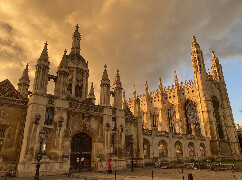- +91 22 23526372
- kgc@karangupta.com

Missed Ivy Admit? How to Successfully Transfer to an Ivy League School Most s... Read More

Shift in Ivy League Admissions: How SATs, Essays, and Strategy Are Changing the ... Read More

“Curriculum” — A-Levels vs IB: Which Fits You Better? Decid... Read More

IIM Mumbai’s New Bachelor’s Degree: BS in Digital Sciences and Busin... Read More

Should You Pursue an MBA or MS? Find the Right Path for Your Skills and Goals Most students think... Read More

MBA vs MFin: Which Degree Fits Your Brain and Career? Why This Choice Matters More Than Students ... Read More

GMAT vs GRE vs Executive Assessment: Which MBA Exam Fits Your Brain? Most Indian MBA applicants a... Read More

Why Choose Australian Universities for MBA Australia offers high-quality education with a multicu... Read More

Is 25 the Best Age to Do an MBA? Absolutely — And Here’s Why by Dr. ... Read More

An MBA (Master of Business Administration) is a graduate-level degree that focus... Read More

With the recent changes in the GMAT exam structure, known as the GMAT Focus Edit... Read More

The MBA in Tennessee is an excellent opportunity for aspiring business leaders t... Read More

The global study-abroad landscape is undergoing a major shift. Recent ... Read More

If you’re planning to study in the U.S., the latest F1 visa... Read More

Studying law in the UK provides students with a high-quality education, offering... Read More

The United States has several top universities renowned for their biotechnology ... Read More

The Truth About Ivy League Admissions — Exposed Through Harvard’s Court Files
When Ha...
Read More

By Dr. Karan Gupta, Education Consultant
Every year I see students panic about their Oxford and C...
Read More

Top 5 European Countries for International Students: Best Universities, Programs & Scholarships
...
Read More

Hidden Gems of Singapore: Top Universities You Didn’t Know About (But Should!)
Singapore is...
Read More

Australia has announced a new, highly anticipated pathway for young Indian graduates: 3,000 annual v... Read More

Choosing the right school board for Class 10 is one of the most important educat... Read More

How Indian Students Can Study Abroad for Free: Top Scholarships for Bachelor’s, Master’s... Read More

Insider’s Guide to Global University Admissions: What Really Matters (and What Doesn’t) ... Read More
